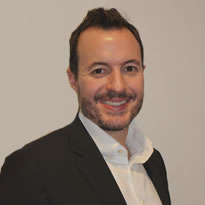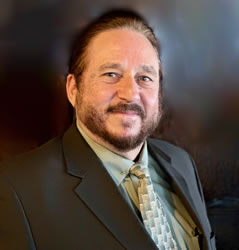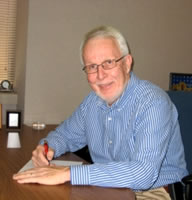3/28/2019· Business Management
Email Can Destroy You - How To Stay Out Of Legal Trouble
By: Peter Crosby
Emails can be dangerous. In the business world, emails can be not only dangerous but also very expensive.


3/28/2019· Business Management
Email Can Destroy You - How To Stay Out Of Legal Trouble
By: Peter Crosby
Emails can be dangerous. In the business world, emails can be not only dangerous but also very expensive.

12/28/2018· Intellectual Property
Commercially Reasonable Efforts - How an Expert Can Help
By: Peter Crosby
Imagine this scenario: Early stage company Smallco develops an exciting new technology, which it uses to create the prototype of its first product - Brakethroo! A large company in the same field, Bigco, becomes aware of Brakethroo, and realizes that if the product works as hoped, it could be a valuable addition to Bigco's product range. Bigco offers to buy the technology and product from the shareholders of Smallco. The merger and acquisition (M&A) agreement specifies an up-front payment, and one or more payments dependent on achievement of milestones. Bigco agrees to use "commercially reasonable efforts" to achieve the milestones. Smallco and Bigco sign the agreement, the shareholders of Smallco get an immediate payout and look forward to further milestone payments.

5/18/2018· Business Management
My Life as a Microsoft Dynamics Expert Witness
By: Eric Kimberling
I have been involved with Microsoft Dynamics implementations for nearly 20 years now. I have also spent the last decade providing Microsoft Dynamics expert witness testimony in implementation failures and lawsuits.

4/25/2012· Business Management
How Sarbanes-Oxley Affects Your Disaster Recovery Planning
By: Leo A. Wrobel
Unless you're trying to land your CEO in jail, your disaster recovery plan had better be good. Leo Wrobel explains how the passage of the Sarbanes-Oxley Act of 2002 ultimately means that you really need a plan that protects your data.

11/16/2011· Business Management
Business Resumption Planning in Small and Medium-Sized Offices
By: Leo A. Wrobel
Your small business can go from thriving to surviving in the time it takes for an earthquake, an intruder, or some other disaster to wreak havoc on your property. Leo Wrobel explores some steps that even very small businesses can take to prevent or handle a disaster and get back to normal.

6/23/2011· Business Management
Less-Is-More: A Reality-Based Alignment Process
By: William Lybarger
Most organizations will eventually face hard times. I am suggesting that organizational leaders see this event as an opportunity rather than a trauma.

5/11/2011· Business Management
Increasing Profits By Doing Less
What is the fastest way to increase profits? Stop doing things that don't make a profit! Could increased net profit, increased return on investment and improved cash flow be that easy? The answer is yes.

6/17/2009· Crisis Management
By: Peter Power, BA FIRM FCMI FBCI
It might have been 30 years ago but in a new age of immediate and global communications there is a message here for 2009: Any world leader is on a stage these days and the audience compared to 1979 is not just one country

4/10/2007· Professional Skills
By: Mike Kerr
Business author Paul Hawken said it best, "We lead by being human. We do not lead by being corporate, by being professional or by being institutional." Perhaps that’s why many leaders are embracing one of the most undervalued human resources they have at their disposal - their sense of humor

8/7/2006· Business Management
Managing Frontline Employees for Customer Success: A Toolbox of Employee Satisfaction Ideas
By: Dorothy Pederson
For decades there has been a chasm between frontline employees, typically hourly, and management. Frontline employees recognize a problem and feel powerless to "fix it." They blame management and expect them to "fix it!" They perceive that management does not listen to them. They feel discounted. So they rebel
by Nancy M. Major, MD, et al
by David Smith, PhD
by Francis Wellman




